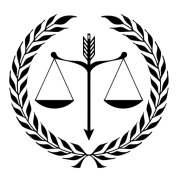Best Energy Regulatory Law Lawyers in Sisli
Share your needs with us, get contacted by law firms.
Free. Takes 2 min.
List of the best lawyers in Sisli, Turkey
About Energy Regulatory Law in Sisli, Turkey
Energy Regulatory Law governs how energy activities are conducted, monitored, and regulated within Turkey, including the district of Sisli in Istanbul. This field of law concerns the generation, transmission, distribution, and consumption of energy, such as electricity, natural gas, petroleum, and renewables. In Turkey, energy markets are highly regulated by specific laws and authorities to ensure compliance with national policies, protection of consumer rights, fair competition, and environmental standards. Energy Regulatory Law in Sisli covers local application of these national laws to ensure that energy providers and users comply with the legal standards.
Why You May Need a Lawyer
Individuals and businesses in Sisli may need a lawyer specializing in Energy Regulatory Law for various reasons. Common situations include:
- Obtaining or renewing energy licenses for production, distribution, or supply
- Handling disputes with energy suppliers or customers regarding pricing, supply interruptions, or contract terms
- Ensuring compliance with national and local energy regulations
- Understanding the impact of new energy projects or infrastructure developments
- Dealing with environmental and zoning issues related to energy installations
- Addressing fines, sanctions, or audits from regulatory bodies
- Participating in public or private tenders for energy services
- Transitioning to renewable energy sources and ensuring legal compliance
Local Laws Overview
Energy Regulatory Law in Sisli is shaped by both Turkish national legislation and local administration requirements. Key aspects include:
- License requirements - All energy activities usually require a valid license from the Energy Market Regulatory Authority (EMRA or EPDK).
- Consumer protection - Regulations protect end-users from unfair practices, ensuring safe and reliable energy supply.
- Tariff regulation - The government controls energy pricing, setting limits on how much suppliers can charge.
- Environmental regulations - Projects must comply with environmental laws, including Environmental Impact Assessments (ÇED in Turkish).
- Grid access - Rules ensure fair and non-discriminatory access to energy grids and infrastructure.
- Dispute resolution - Disagreements between parties are often resolved through EMRA or in administrative courts in Istanbul.
- Local zoning and municipal permits - For facility installation or expansion, Sisli Municipality's urban planning and construction laws must be followed.
Frequently Asked Questions
What is the main regulatory authority for energy in Sisli?
The main regulatory authority is the Energy Market Regulatory Authority (EMRA, or EPDK in Turkish), which supervises all energy activities nationally, including those in Sisli.
Do I need a license to generate electricity for my own use?
Small-scale self-consumption (particularly for residential solar energy) may be exempt from licensing requirements up to a certain capacity, but larger generators need EMRA licenses.
What are the main laws governing energy in Turkey?
The Electricity Market Law, Natural Gas Market Law, Petroleum Market Law, and Renewable Energy Law are the core statutes. Local rules in Sisli must comply with these laws.
How can I resolve a dispute with my energy supplier in Sisli?
Most disputes can be brought to EMRA as the first point of complaint. Serious or unresolved matters may require legal proceedings in civil or administrative courts.
Can local businesses participate in energy tenders?
Yes, provided they meet the eligibility criteria set by EMRA and other relevant bodies. Legal support may help with application processes and compliance.
What are the penalties for violating energy regulations?
Penalties range from administrative fines to license suspension or cancellation. In cases involving criminal activity, criminal prosecution is also possible.
How are tariffs and prices determined?
Tariffs are regulated by EMRA. Prices can be fixed or variable, depending on contract type, but they must comply with regulatory limits and structures.
What environmental laws must energy projects in Sisli obey?
Projects need to complete Environmental Impact Assessments and comply with national and municipal environmental regulations to prevent harm to the local ecosystem.
Can individuals or businesses sell surplus renewable energy to the grid?
Yes, but a specific license or registration is required, and sales must adhere to EMRA rules on grid connection and tariffs.
What should I do if I receive a fine or sanction from EMRA?
Consult a qualified Energy Regulatory Law lawyer immediately. You may appeal the decision through administrative procedures and, if necessary, through the courts.
Additional Resources
Here are some useful resources and organizations related to Energy Regulatory Law in Sisli, Turkey:
- Energy Market Regulatory Authority (EMRA, EPDK) - The main national regulatory body for energy
- Turkish Ministry of Energy and Natural Resources - Sets national energy policy and oversees implementation
- Sisli Municipality - Handles permits, urban planning, and local compliance issues
- Chamber of Electrical Engineers (EMO) - Offers guidance for technical and regulatory standards
- Bar Association of Istanbul - Can help you find lawyers specialized in energy law
Next Steps
If you need legal assistance with Energy Regulatory Law matters in Sisli, consider these steps:
- Clarify your issue or question, gathering all relevant documents and facts
- Contact a lawyer or law firm with experience in Energy Regulatory Law in Sisli
- Reach out to EMRA or Sisli Municipality for basic information or to file initial complaints
- Assess whether you need ongoing legal representation or just a one-time consultation
- Keep records of all communications and official documents related to your case
- Follow your lawyer's guidance on how to proceed, whether by negotiation, administrative appeal, or court action
Energy law can be complex and strictly enforced. Seeking professional legal advice early can help protect your rights, ensure compliance, and resolve disputes effectively.
Lawzana helps you find the best lawyers and law firms in Sisli through a curated and pre-screened list of qualified legal professionals. Our platform offers rankings and detailed profiles of attorneys and law firms, allowing you to compare based on practice areas, including Energy Regulatory Law, experience, and client feedback.
Each profile includes a description of the firm's areas of practice, client reviews, team members and partners, year of establishment, spoken languages, office locations, contact information, social media presence, and any published articles or resources. Most firms on our platform speak English and are experienced in both local and international legal matters.
Get a quote from top-rated law firms in Sisli, Turkey — quickly, securely, and without unnecessary hassle.
Disclaimer:
The information provided on this page is for general informational purposes only and does not constitute legal advice. While we strive to ensure the accuracy and relevance of the content, legal information may change over time, and interpretations of the law can vary. You should always consult with a qualified legal professional for advice specific to your situation.
We disclaim all liability for actions taken or not taken based on the content of this page. If you believe any information is incorrect or outdated, please contact us, and we will review and update it where appropriate.















